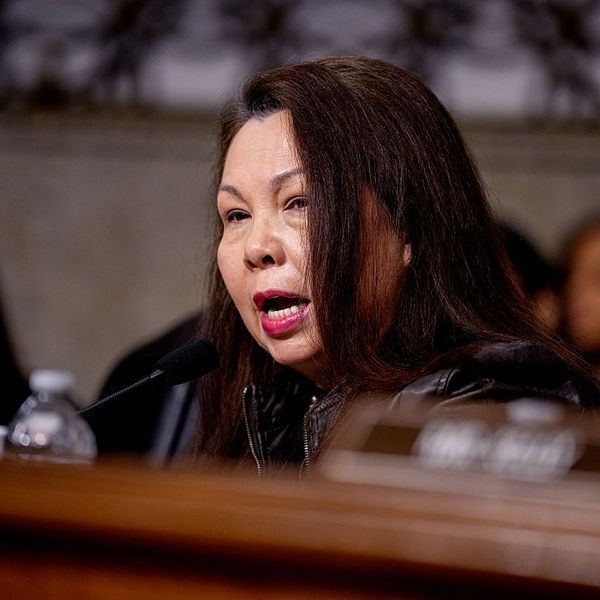Natalie Portman is no anti-Zionist. She has a long history of supporting Israel and has often been described as a liberal Zionist. Let's not forget that she directed and starred in, A Tale of Love and Darkness, expressing her immense admiration for Amos Oz, an iconic Zionist and one of Israel's best novelists.
Yet, Portman's decision not to travel to Jerusalem to receive the Genesis Prize has, not surprisingly, generated a violent and vitriolic response from the Israeli government and many right-wing politicians. There are calls to revoke her citizenship as well as lots of name-calling: from "naive" through "hypocrite" to bordering on being anti-Semitic.
On the other side of the political spectrum, supporters of the Boycott, Divestment, Sanctions (BDS) movement maintain that despite her claims otherwise, Portman is unwittingly endorsing BDS, since her refusal to participate in the prize ceremony is related to the politics and institutions of the Israeli state. BDS, after all, is not about boycotting individuals or Israelis per se but, rather, state institutions.
In order to prove these assertions wrong, Portman explained her decision to withdraw from the prize ceremony, cannily announcing that she will shortly be naming the Israeli charities to which she plans to donate.
These predictable reactions, which have drawn an immense amount of media coverage, should not obscure the real issues involved in Portman's unanticipated announcement. While she has managed to stir public controversy because of her fame, this story is more about the changing conditions that have pushed her to make this decision than the decision itself. Three developments on the ground are particularly important.
The real story
One of these developments is the unprecedented mass non-violent mobilisation of the people of Gaza, which in recent weeks has seen people risk death and injury in order to raise their voices in protest.
They are insisting on their right to return to their ancestral lands and also - and more urgently - decrying their dire plight in the biggest open-air prison in the world. Despite the effort of the New York Times and other media outlets to present the recent Gaza protests as "clashes," tens of thousands of Palestinians have been courageously marching towards the militarised fence, week after week, adopting non-violent strategies while being shot by Israeli snipers.
While using disproportionate and lethal force is nothing new in Israel's decades-long occupation of Palestinian land, this may be the first time in which the Israeli military is literally shooting at thousands of people as though they were hunting game. Thirty-nine protesters have been killed while the number of wounded is, to date, over 4,000.
Thus, the scale of the protests and the non-violent strategies of the protesters, alongside the use of snipers not only appear to be unparalleled, but have also produced outraged reactions in ways that other similar - if smaller - protests across the West Bank and Gaza over the years have not. Portman has undoubtedly seen images coming out of Gaza and they surely moved her.
The second development is that there has been a noticeable shift in American Jewish attitudes towards Israel, particularly among the millennials, many of whom are Portman fans. The debate on college campuses in the US is much more polarised on the issue of Israel-Palestine than it has been in the past, due, at least in part, to the increasing numbers of young Jewish voices who have joined the ranks of Israel's critics.
Many of these young people have grown up in the wake of the second Intifada, the BDS movement, as well as with the ever-rightward turn of Israel's government and its rampant corruption. Moreover, where once AIPAC was the most influential Jewish lobby in the US, today there are other organisations, such as J-Street and Jewish Voices for Peace, which have managed to counter at least some of AIPAC's propaganda. Thus, public opinion, especially among young Jewish Americans, has changed quite significantly over the past years.
Finally, Donald Trump's election and his crisis-driven administration have created a very different political atmosphere within the US itself. Indeed, thousands of citizens, among them many American Jews, have been politicised in ways that we have not seen in the past.
Trump's decision to move the US embassy to Jerusalem and declare Israel's sovereignty over the city has contributed to and even exacerbated the overall climate of frustration and urgency among more progressive Jews.
Between #MeToo and Gaza
Portman's decision must, therefore, be understood within this wider context. The woman who many years ago helped Alan Dershowitz produce virulent pro-Israel propaganda has clearly changed her tune, and not only on Israel and Palestine. Her recent support for the #MeToo movement is another indication of this political transformation.
Portman and all the other famous people who weigh in on Israel's colonial project, however, are not the real issue here - in the same way that the #MeToo movement is not about the high-profile women who have spoken out against sexual assault and harassment.
While Portman's decision and the media attention it has garnered has the potential to change public discourse on Israel and Palestine, what is most important is Israel's violent and brutal tactics of hunting down Palestinians, even when - or precisely because - they are using non-violent methods of protest.



